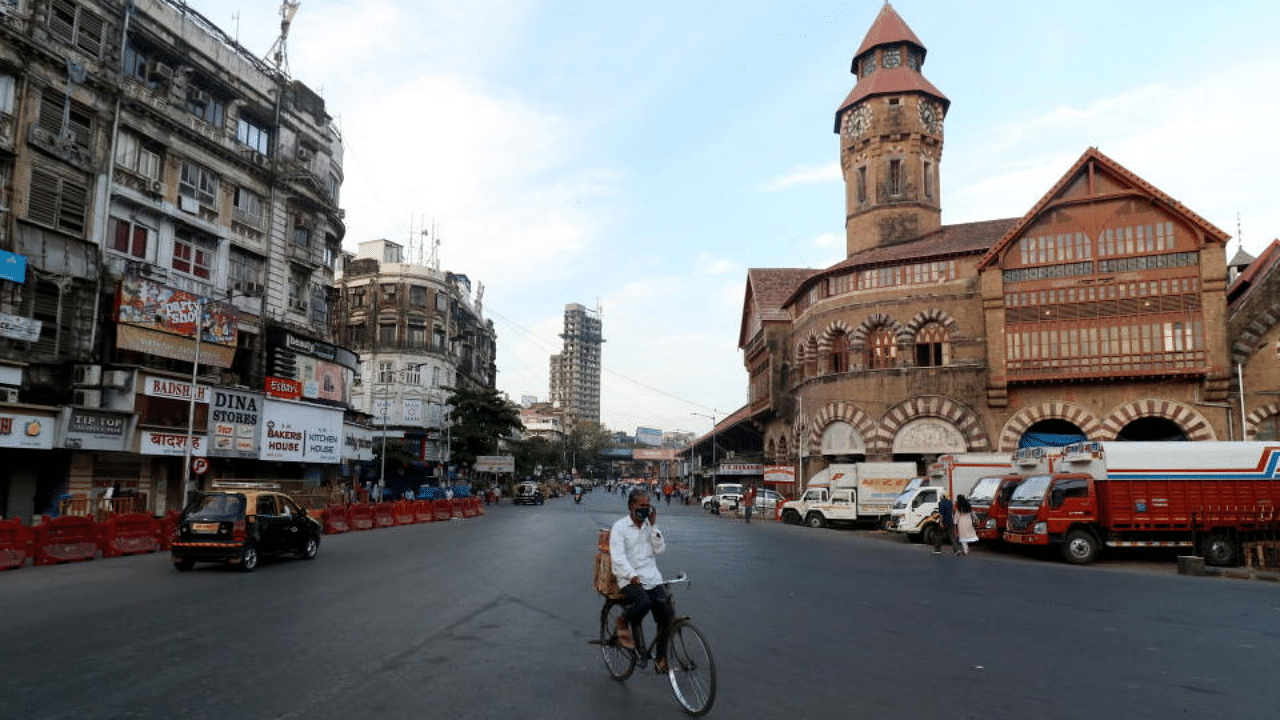
By Dhwani Pandya and Ashutosh Joshi
India’s devastating new wave of infections appears to have landed on its urban affluent, a group whose lives are usually insulated from the country’s worst economic and social crises.
In Mumbai, India’s financial center, almost 600,000 households are in buildings that have been partially or completely sealed by government authorities, which indicates the coronavirus is spreading rapidly among the city’s middle and upper-middle classes. Official data show 164,000 slum households are in areas demarcated as “containment zones,” despite the poor being packed in far more tightly.
“Most cases are coming from buildings and high rises and not slums,” Suresh Kakani, Mumbai’s deputy municipal commissioner, said by phone.
With the so-called consuming class ravaged by the new wave, India’s growth is at risk because private consumption accounts for about 60% of India’s economy. The central bank’s consumer confidence survey is showing increasing pessimism on jobs and policy makers have said they stand ready to support growth in what is now the world’s epicenter of the pandemic.
“Times are such that people are seeking help from every quarter possible,” said Ajay Bagga, a retired banker and fund manager, who is helping vet claims on social media from groups purporting to supply the Covid treatment remdesivir. “Trader chatrooms are no more exclusive to market discussions. People are sharing information on hospital beds, oxygen supplies.”
The affluent cities of Mumbai and Pune account for almost 30% of Maharashtra state’s active cases while housing 14% of its population. Within Mumbai, more than 90% of all active cases at the state of the week were concentrated in high-rise buildings while only 10% came from the slums, according to an Indian Express analysis.
Comparable data isn’t available for other Indian cities but similar stories abound. Bankers are turning to Twitter to seek medical help for their friends and family, tycoons are advising people to keep their masks on even in the presence of trusted folks, and citizens who, until now, enjoyed levels of privilege unthinkable for the vast majority of Indians, are pleading for hospital beds and oxygen.
One reason why the second wave is hitting wealthier Indians hard is simply that they managed to avoid the first outbreak by sheltering at home when Prime Minister Narendra Modi announced a strict lockdown that devastated poorer communities.
The first wave coursed through India’s crowded slums quickly -- serological surveys conducted mid-2020 showed about half the population in Mumbai’s slums had antibodies compared with less than 20% for the rest of the city. This might now be providing a level of protection against the second, deadlier outbreak for disadvantaged populations.
Several countries have suspended flights from India or imposed travel restrictions, including Canada, Singapore, and the U.K. The U.S. is consulting with India about a surge in coronavirus cases and deaths but so far isn’t offering to share vaccines.
India reported a record 346,786 new infections and 2,624 deaths on Saturday. Doctors Without Borders is restarting its emergency response amid the surging wave in Mumbai, the international medical aid group said in a statement on Friday.